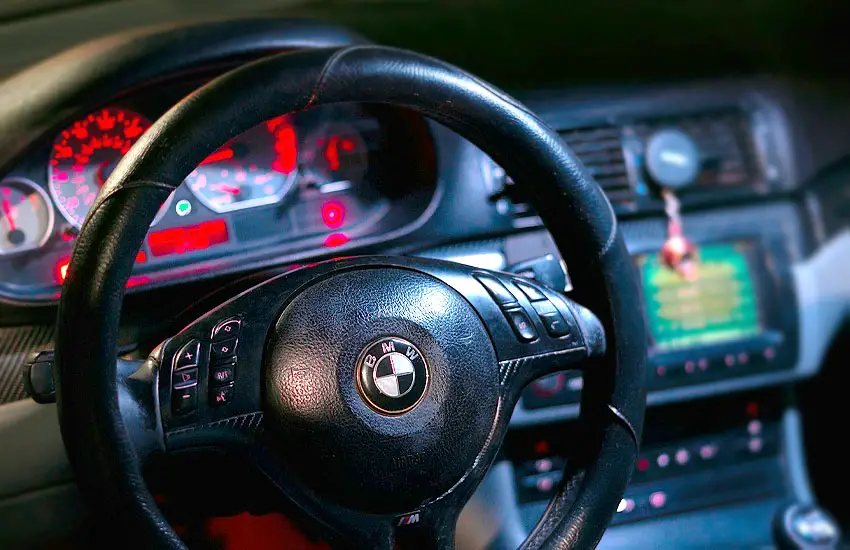As an Amazon Associate, I earn from qualifying purchases at no extra cost to you.
How to Reset ESC Light On Your Car: Quick Techniques!
You might see the ESC light come on in your car and wonder what it means. ESC stands for Electronic Stability Control. It helps keep your car stable, especially in slippery conditions. When the ESC light turns on, it means there might be a problem.
Don't worry, though. Resetting it is usually simple. In this post, we'll walk you through easy steps to reset the ESC light and get your car back to normal. So, if your ESC light is on and you're not sure what to do, keep reading! We've got you covered.
Understanding the ESC Light
The ESC light stands for Electronic Stability Control. This light shows up on your dashboard when there is a problem with your car's stability control system. This system helps keep your car steady, especially on slippery roads or sharp turns.
If this light stays on, it means the system needs fixing. It's important to understand what this light means before you try to reset it. Sometimes, the ESC light can turn on for a simple reason, like a minor glitch.
Other times, it could be a sign of a more serious problem. Make sure you are aware of what the ESC system does for your car's safety. Checking your car's manual will give you detailed information about what to do when this light comes on.
Common Causes for ESC Light to Illuminate
The ESC light on your dashboard can be confusing. This light, which stands for Electronic Stability Control, helps keep your car stable. When it turns on, it usually means there's an issue with the ESC system or something related to vehicle stability.
Slippery Road Conditions
One common reason the ESC light comes on is slippery roads. When it's raining, snowing, or icy, your car can lose traction. The ESC system tries to help by adjusting the brakes and engine power to keep you on track. If the system is working hard to keep your car stable, the ESC light might turn on.
Traction Issues
Another reason the ESC light might illuminate is traction issues. If one or more wheels are spinning too much, the ESC system will engage to help regain control. This can happen if you accelerate too quickly or if your tires are worn out. When the system notices these problems, it activates and the ESC light turns on.
System Malfunction
Sometimes, the ESC light comes on because there is a problem with the ESC system itself. This can be due to a faulty sensor, a problem with the control module, or an issue with the wiring. If the system detects a malfunction, it will turn on the light to alert you.
Brake System Issues
Problems with the brake system can also trigger the ESC light. If the brake fluid is low or if there's a problem with the ABS (Anti-lock Braking System), the ESC system might not function properly. This could cause the ESC light to appear.
Steering Problems
Finally, if there are issues with the steering system, the ESC light might come on. The ESC system relies on accurate steering information to function correctly. If there's a problem with the steering or alignment, the light could be a sign of trouble.
If you see the ESC light, it’s a good idea to have your car checked by a professional to ensure everything is working as it should.
How to Reset ESC Light: Steps to Follow!

Step 1: Check the Owner’s Manual
The first thing you should do is look at your car's owner's manual. This manual is a book that came with your car and has a lot of important information. It will tell you exactly what to do if the ESC light comes on.
Different cars might have different steps for fixing this issue. So, your car's manual will be the best place to find specific instructions for your vehicle. In the manual, look for a section about dashboard lights or warning lights. It should explain what each light means and what you should do.
Following these instructions will help you address the problem correctly and safely. If you don't have the manual, you might be able to find a copy online or contact your car's manufacturer for help.
Step 2: Inspect the Vehicle
Next, you need to check your car to see if there are any visible problems. Start by looking at the dashboard for other warning lights or messages. Sometimes, the ESC light can come on with other lights if there is a bigger issue.
For example, if the brake light is on too, there could be a problem with the brakes that affects the ESC system. Also, check your tires to make sure they are properly inflated and not worn out. If your tires are low on air or damaged, it can affect how the ESC system works.
Another thing to look for is any loose or damaged wires around the wheel speed sensors and ABS sensors. These wires are important for the ESC system to work correctly. If you find any issues, fixing them might solve the problem.
Step 3: Reset the ESC System
To reset the ESC system, start by turning off the car. Leave it off for a few minutes. Sometimes, just turning off the car and waiting can fix minor glitches in the system. After waiting, turn the car back on and see if the ESC light is off. If the light goes out, the problem might have been temporary.
However, if the light stays on, you'll need to try other steps. This simple reset can help with minor issues, but it's not always a permanent fix. If the ESC light remains on, it could mean there is a more serious problem that needs to be addressed.
Step 4: Perform a System Reset
If turning off the car doesn't work, you can try a system reset using the car's fuse box. First, locate the fuse box. It is usually found under the dashboard near the steering wheel or in the engine compartment.
Once you find the fuse box, look for the fuse related to the ESC system. This fuse might be labeled as "ESC," "ABS," or something similar. Carefully remove this fuse and wait for about 10 seconds. After waiting, put the fuse back into its place.
Then, turn the ignition on and check if the ESC light has turned off. This method can sometimes reset the ESC system if the problem was with the fuse.
Step 5: Use a Diagnostic Tool
If the ESC light is still on, you can use an OBD-II (On-Board Diagnostics) scanner. This tool helps read error codes from your car and can clear warning lights. To use it, plug the scanner into the OBD-II port, which is usually found under the steering wheel.
Follow the instructions on the scanner to check for any error codes related to the ESC system. After finding the codes, use the scanner to clear them and reset the ESC light. This method is useful for finding out if there are any specific issues with the ESC system and addressing them.
Step 6: Visit a Mechanic
If none of the above steps work, it's time to visit a professional mechanic. The ESC light might stay on because of a more serious issue with the ESC system. A mechanic can use special tools to diagnose and fix the problem. They will have the expertise to understand what's wrong and how to fix it.
It's important to get professional help to ensure your car remains safe and reliable. Ignoring the ESC light or trying to fix it yourself without proper knowledge can lead to more problems and safety risks.
Are these Questions in Your Mind?
Is it safe to drive with the ESC light on?
Driving with the ESC light on can be risky. The ESC system helps keep your car stable, especially in slippery conditions. If the light is on, the system might not be working correctly, which can affect your safety. It’s best to have the problem checked and fixed as soon as possible to ensure your vehicle remains safe to drive.
Can low tire pressure cause the ESC light to turn on?
Yes, low tire pressure can trigger the ESC light. When tires are not properly inflated, it can affect how the ESC system operates. The system relies on accurate tire information to maintain stability. Make sure all your tires are correctly inflated and check if the ESC light turns off after fixing them.
Do I need to reset the ESC light after fixing a tire issue?
In many cases, fixing a tire issue will cause the ESC light to turn off by itself. However, if the light remains on after correcting the tire problem, you might need to reset the ESC system or have it checked by a mechanic to ensure everything is working correctly.
Is it possible to reset the ESC light without a diagnostic tool?
Yes, sometimes you can reset the ESC light by turning off the car and waiting a few minutes. This simple method can clear minor glitches. If the light stays on, using a diagnostic tool or visiting a mechanic might be necessary.
Can a faulty wheel speed sensor cause the ESC light to come on?
Yes, a faulty wheel speed sensor can cause the ESC light to come on. The ESC system relies on accurate information from these sensors to function properly. If a sensor is malfunctioning, it can trigger the ESC light. Replacing or repairing the faulty sensor should resolve the issue.
Do I need to visit a mechanic if the ESC light turns on after a battery change?
If the ESC light turns on after a battery change, it might be related to the reset of the car's systems. Try turning off the car and restarting it first. If the light remains on, it's a good idea to visit a mechanic to ensure there's no underlying issue with the ESC system.
Can the ESC light turn on due to a brake system issue?
Yes, problems with the brake system can cause the ESC light to turn on. The ESC system works closely with the brake system to maintain vehicle stability. If there is an issue with the brakes, it can affect the ESC system. Have the brake system inspected if the ESC light is on.
Is it necessary to reset the ESC light after changing brake pads?
Typically, changing brake pads should not require an ESC light reset. However, if the light comes on after changing brake pads, it may indicate an issue with the brake system or the ESC system. Checking and resetting the system may be needed to ensure proper operation.
Do I need to check for error codes if the ESC light is on?
Yes, checking for error codes can help identify the specific problem causing the ESC light to come on. An OBD-II scanner can read these codes and provide information about what needs to be fixed. This can be a helpful step before deciding on further actions.
Can the ESC light be related to an engine problem?
Yes, sometimes the ESC light can be related to engine problems. The ESC system works with various vehicle systems, including the engine. If there is an issue with the engine that affects the ESC system, it can trigger the light. It's important to diagnose and address any engine problems to ensure overall vehicle safety.





